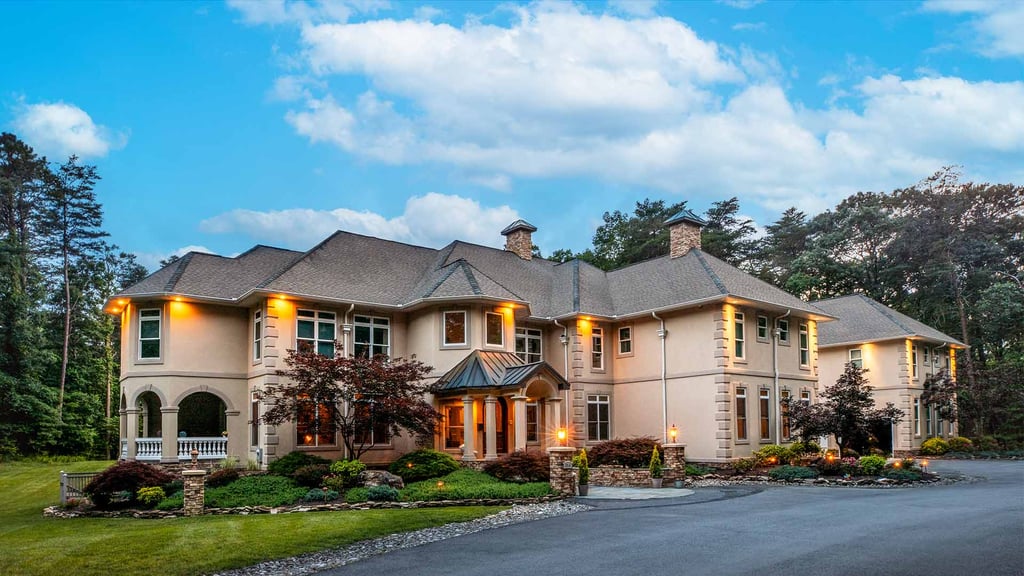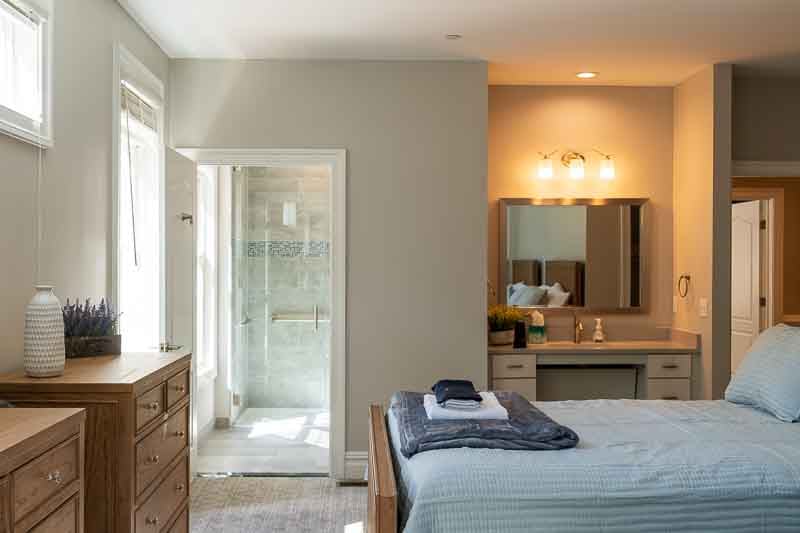Amphetamine Addiction Rehab in Maryland
We specialize in treating amphetamine use disorder. Our minimum treatment stay is 30 days, and we accept most major health insurance.
Located in Pasadena, Maryland
Our property is tucked away on 40 acres of tree-covered land in the heart of Anne Arundel County, Maryland. It features four state-of-the-art homes, two pools, multiple gyms, and hot tubs, offering a serene and luxurious setting for our residential program.
Some of the amenities that are included in our residential program.
Washer's
Dryer's
Four Kitchens
24/7 Staff
Behavioral Health Team

Why do people use amphetamines?
People with underlying mental health conditions, such as anxiety, depression, or ADHD, may turn to amphetamines to cope with their symptoms. Amphetamines can temporarily enhance focus, elevate mood, and provide an energy boost, which may seem appealing for those struggling with low energy, difficulty concentrating, or negative emotions. However, over time, this can lead to Amphetamine Use Disorder as the body builds a tolerance, requiring higher doses and creating dependence. In dual diagnosis treatment, both the substance use and the co-occurring mental health disorder are treated simultaneously to promote recovery.
Medical Services Included
Comprehensive breakdown of the medical services included for amphetamine dependency.
Some of our medical services
Alcohol is often used to mask underlying mental health concerns.
Our multi-disciplinary team of addiction and mental health specialists allows us to address underlying issues like anxiety, depression, trauma, and PTSD effectively. We ensure a minimum of four individual therapy sessions each week as part of our residential program. We believe this focused, personalized approach is key to long-lasting recovery from alcohol dependency.
Treatment Methods for Amphetamine Misuse
Residential addiction treatment is crucial for people with Amphetamine Use Disorder because it provides a structured, supportive environment where both the physical and psychological aspects of addiction can be addressed. Amphetamine addiction often leads to severe mental health issues, such as anxiety, depression, and psychosis, which require comprehensive care. In a residential setting, individuals receive 24/7 supervision, intensive therapy, and a controlled environment that helps manage withdrawal symptoms, reduce relapse risk, and treat co-occurring mental health disorders through dual diagnosis approaches.
Family Support
Addiction affects the entire family, creating emotional, financial, and relational strain. Family members often experience stress, anxiety, and feelings of helplessness as they try to cope with the unpredictable behaviors of their loved one. Trust can be broken, communication may deteriorate, and relationships can become strained or distant. In many cases, families also endure financial burdens due to the cost of addiction and its consequences, such as job loss or legal issues. The emotional toll can lead to resentment, depression, and trauma for family members.
One of our Licensed Mental Health Therapists Traci Braughtigan explains Family Therapy
Family Services
We strongly encourage family and friends to support clients during treatment. We offer weekly family therapy sessions and provide Family Visitation every Sunday to help strengthen connections and foster healing for both clients and their loved ones.

Members of our team sitting in one of the living rooms at Tranquility Woods.
The importance of Group Therapy
Small group therapy in our residential program is essential because it creates a safe environment where clients can build trust, share their experiences, and connect with others who are facing similar challenges. In smaller groups, individuals often feel more comfortable opening up, which leads to deeper discussions and more personalized feedback from both peers and therapists.
Small Group Therapy
Group therapy is an effective way to provide education and collaboration. Our small group therapy sessions cover a wide-range of different topics encompassing the relationship between addiction and mental health.

One of the bedrooms at Tranquility Woods.
Treating the Whole Person
Therapies like yoga, meditation, acupuncture, and massage are vital to our residential program because they address the physical, mental, and emotional aspects of recovery. These holistic therapies help reduce stress, promote relaxation, and improve overall well-being, which is crucial in managing withdrawal symptoms and cravings.
Holistic Therapy
Our approach to treatment considers the whole person—addressing physical, mental, emotional, social, and spiritual factors—rather than focusing solely on the symptoms of addiction. Each of our Holistic modalities were selected to create a peaceful environment for healing and recovery.
Change can happen.
Take the First Step Toward Lasting Recovery
At Tranquility Woods, we understand that addiction is complex, but recovery is possible with the right support. Our comprehensive, individualized approach combines evidence-based therapies, holistic care, and compassionate support to address not just the symptoms, but the root causes of addiction.
Whether you’re struggling with alcohol, drugs, or co-occurring mental health conditions, we’re here to guide you on the path to lasting recovery. Contact us today to start your journey toward healing and a healthier, sober life.